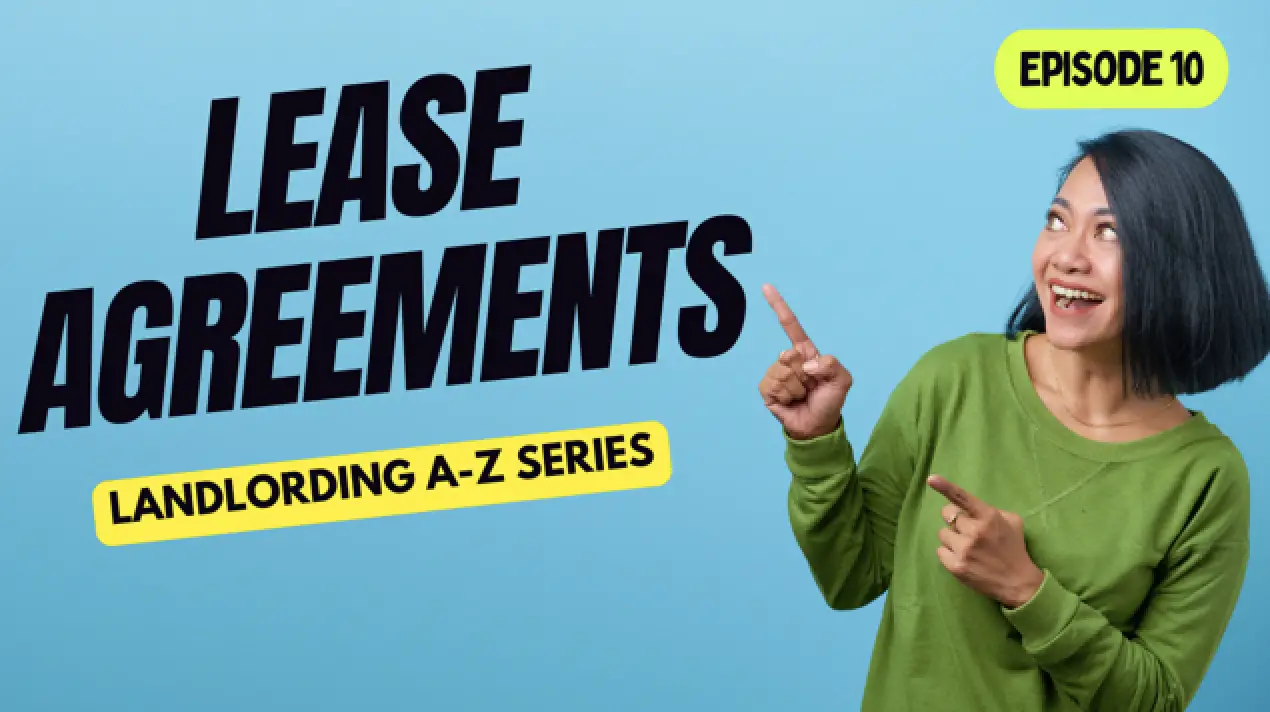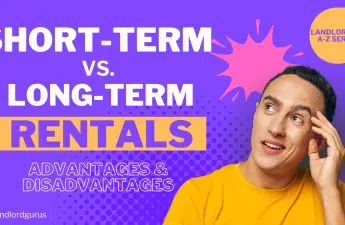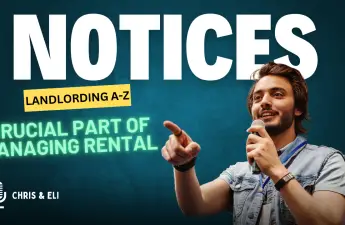In the previous episode, we went over rejecting or accepting potential tenants. Now that you’ve chosen an applicant, this is where you need to be thorough and ensure that you have all the necessary rental documents. In this installment of Landlording A-Z, we will go over writing lease agreements. Below is a brief rundown. See the complete episode for more information
![]() Also Read: Understanding Rental Lease Agreements: A Landlord’s Guide
Also Read: Understanding Rental Lease Agreements: A Landlord’s Guide
Local Laws
Laws are changing constantly and vary widely from state to state and city to city. You must know your local laws.
Here are some common rental laws to watch for:
- Deposit amounts
- Occupancy levels
- Just cause: For example, no more fixed term (can still have fixed term but must offer renewal 60-90 days before expiration unless there is just cause to not offer renewal)
- Required documents: Lead paint disclosure, mold addenda, local landlord/tenant law, voter registration
![]() Also Read: State Specific Residential Lease Agreements
Also Read: State Specific Residential Lease Agreements
The Basics
Whether you are writing the lease yourself or finding one to use elsewhere, make sure that all adults are on the lease and have signed it. Also ensure that all rent amounts, fees, and deposits are listed. Make sure that you also note what they are for.
Make sure there is something in your lease that talks about the tenant’s responsibility for things like keeping the property in good repair, reporting problems, and being responsible for their guests. You can also decide to put something that states that they are only allowed to have guests for a certain number of nights.
Additionally, decide whether it is a monthly agreement or a term agreement. Similarly, write down what is included in the rent amount. Parking, storage, utilities? You should also describe what will happen when the lease term expires. Does it revert to month-to-month or does it end?
![]() Also Read: Residential Lease Agreements: Best Software for Landlords
Also Read: Residential Lease Agreements: Best Software for Landlords
Specific Terms to Include
There are also many specifics to a property, applicant, or situation. Here are some to consider:
- Pets: Determine if pets are allowed. If so, think about the type of pet and how many.
- Utilities: Who is responsible and how are they to be paid?
- Bed bug addendum
- Smoke-free addendum
- Crime-free addendum
- Is subletting allowed?
- Renters insurance
- Parking agreement
Custom Clauses and House Rules
You should also think about things that might be specific to your rental. Having these spelled out in the lease helps facilitate a good landlord-tenant relationship. This includes agreements about things such as quiet hours, lockouts, common areas, outdoor spaces, satellite dishes, and parking.
Guarantor Agreements
In the case that a guarantor is involved, make sure that you are documenting everything properly. A very simple form should be signed by you and the guarantor. This document formally ensures that the guarantor is a responsible party who is on the hook if some terms of the lease are not met.
Signing
You can choose to sign the lease in person and on paper. Or you can choose to sign it online, which is what we recommend. Nowadays, there are platforms that will help you through this process, such as DocuSign as well as other property management software platforms. Such platforms may also provide leases that you can use, many of which are state-specific. They may even help you create your own customized lease.
![]() Also Read: Where Can Landlords Download Rental Agreement Forms For Free?
Also Read: Where Can Landlords Download Rental Agreement Forms For Free?
Takeaway
When drafting your lease, it’s important to ensure that it’s specific to your area. This will make sure that you are following all laws, even down to the city. You should also think about your property specifically. What terms should be there that are specific to your rental? Finally, we strongly encourage you to find a platform that will allow you to sign the lease electronically.

Landlording A-Z Series:
Our Landlording A-Z series will walk you through each of the stages, tasks, and issues involved in rental real estate investing. In our next installment, we’ll go over the move-in process.




